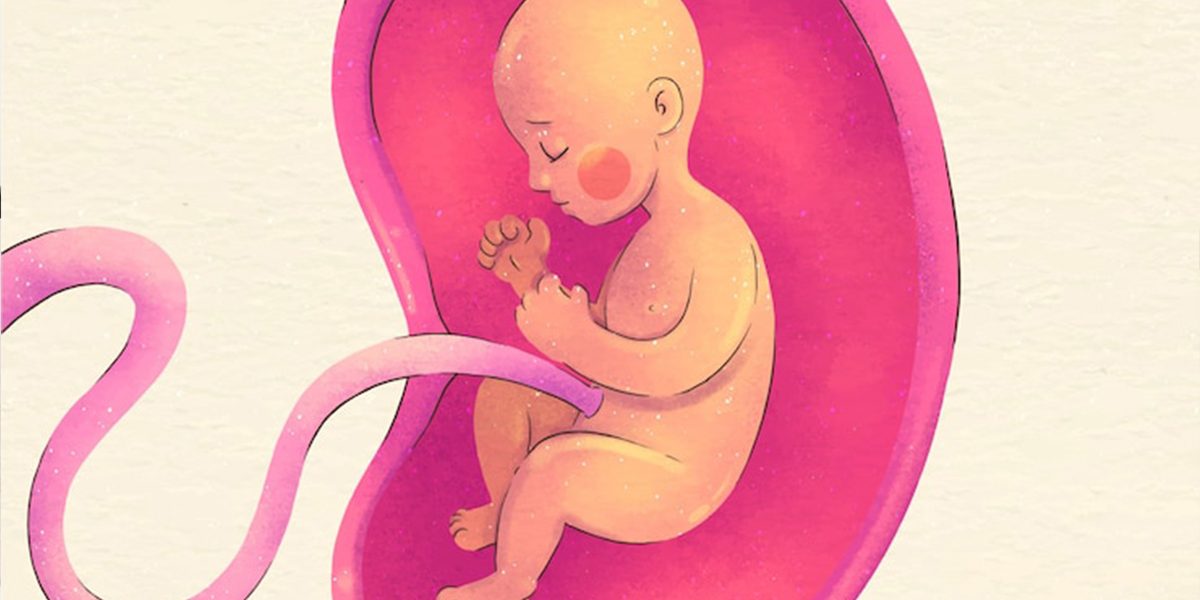Pregnancy is a miraculous journey, captivating not only for parents but also for the tiny life growing within. In fact, research suggests that unborn babies start developing senses just weeks after conception. It’s important to lay the foundation for their connection with parents and the world. In this blog, let’s delve into the sensory intricacies of your baby’s world in the womb. And explore how they move, think, and experience life even before emerging from the womb.
Baby’s World in the Womb
Touch The First Sense to Emerge
Touch is the first among your baby’s senses, with receptors forming as early as week eight of pregnancy. These touch receptors play a vital role in signalling the development of the nervous system, helping your baby explore their surroundings within the womb.
While these receptors make your baby more aware, it takes until at least 24 weeks for them to develop the neural connections needed to sense more complex feelings, such as pain.
Movements
Around the ninth week of pregnancy, your baby starts making initial movements(first movement of baby), visible through ultrasound even though they won’t be felt for several more weeks. From involuntary movements to voluntary ones around week 16, your baby becomes an active explorer, flexing, extending, and touching within their warm, watery home. By week 37, coordination has developed enough for them to grasp with their tiny fingers.
Interestingly, ultrasounds reveal unique activities, including licking the uterine wall and seemingly “walking” around the womb by pushing off with their feet. Babies even react to their parent’s actions, bouncing in joy when laughter fills the air.
For the pregnant person, the feeling of a baby’s movements in the womb, known as quickening, typically begins around week 16 to 20. Described as fluttering, bubbling, or tiny pulses in the belly, these movements become more pronounced over time. By week 29, feeling your baby move at least 10 times an hour is expected, with somersaults, kicks, and hiccups adding to the dance within.
Hearing and Recognizing Sounds
Around 18 weeks, your baby may hear your heartbeat and other sounds within your body. By 27 to 29 weeks, they start picking up external sounds, including your voice. Familiar sounds, such as music or specific voices, become recognizable and comforting, setting the stage for post-birth recognition. Early exposure to language begins in the womb, with some studies suggesting that babies may start recognizing certain sounds even before birth.
Tasting and Smelling the Environment
Taste buds start developing around eight weeks, and by 15 weeks, your baby can “taste” some stronger flavours, including spices and garlic, through swallowing amniotic fluid(water level during pregnancy). Their sense of smell, one of the first to develop, forms as early as eight weeks. In the womb, they become familiar with the scent of amniotic fluid and your unique fragrance, laying the groundwork for post-birth recognition and comfort.
Sight
Your baby’s eyes begin developing as tiny outgrowths of the brain at six weeks, with eyelids forming a month later. Although their eyes remain closed until around 27 weeks, they start responding to bright lights by 31 weeks. In the final weeks of pregnancy, their ability to focus on large objects and track movements further matures.
Sleeping Patterns in the Womb
Similar to newborns, foetuses spend a significant portion of their time sleeping approximately 90 to 95% of the day. Some scientists even speculate that foetuses dream while in the womb, perhaps dreaming about the sensations they experience in their watery haven.
The Journey of Recognition
By the time they’re born, your baby’s sense of smell will be highly developed. They’ll easily recognize you from the scents they detected inside the womb, drawn to you and deeply comforted by your presence.
To Conclude
As we peer into your intricate baby’s world in the womb; we marvel at the unfolding symphony of senses, movements, and experiences laying the foundation for a profound connection that transcends the boundaries of the womb into the world beyond.








